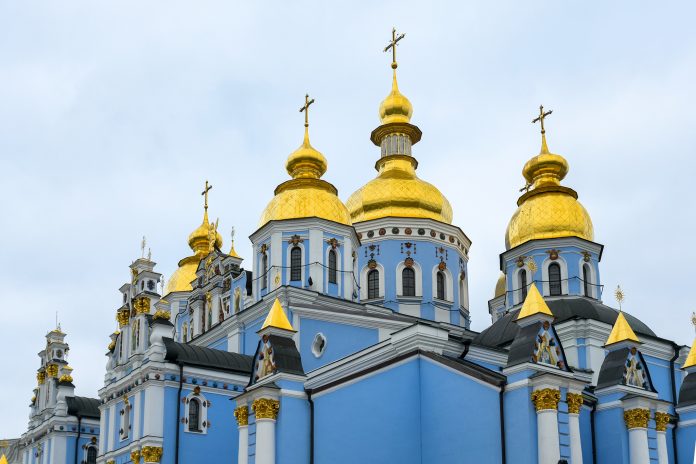Ukrainian President Petro Poroshenko’s appeal to the worldwide head of the Orthodox Church to recognise the Ukrainian Orthodox Church’s independence from Moscow has received backing from Ukraine’s lawmakers.
The resolution was supported by 268 lawmakers, more than the minimum 226 votes needed. The vote came days after Poroshenko met with Archbishop of Constantinople, the Ecumenical Patriarch Bartholomew, during a trip to Istanbul.
As reported by Radio Free Europe/Radio Liberty (RFE/RL), Poroshenko, in a speech to parliament on April 19, called the move an act of “restoring historical justice” and “unity.”
“Unity is our main weapon in the fight against the Russian aggressor,” Poroshenko said. “This question… is about our finally acquiring independence from Moscow.”
According to RFE/RL, Russia illegally annexed Ukraine’s Crimean Peninsula in March 2014 and continues to back separatists in eastern Ukraine in a conflict that has killed more than 10,300 people since April 2014.
In a separate report, the Kyiv Post noted that Poroshenko described the developments around a possible creation of a United Orthodox Church as a “historic event”. The president ruled out the possibility of banning any other churches in Ukraine and noted that the state will remain separated from church.
The Reuters news agency quoted Poroshenko comparing an autocephalous church to Kiev’s aspirations to joining the European Union and Nato, “because the Kremlin regards the Russian church as one of the key tools of influence over Ukraine”.
The Moscow Patriarchate, which sees itself as the only legitimate Orthodox church in Ukraine, is part of the Russian Orthodox Church and has a sizeable following in Ukraine. Kiev considers it a tool for the Kremlin to wield influence.

